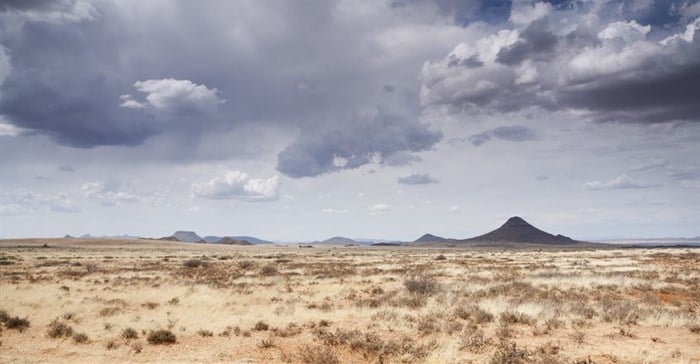Some of the key issues related to fracking were debated at the Unconventional Gas (UGAS) conference that took place in Cape Town on 28 and 29 September 2015.
SRK Consulting's independent corporate consultant, Peter Rosewarne, presented his paper entitled 'Karoo Shale Gas Exploration: Groundwater Occurrence, Supply, Impact Scenarios and Protection' at the conference.
As the manager of the Karoo Groundwater Expert Group (KGEG), Rosewarne said the KGEG had made substantial and ground-breaking progress in filling gaps in the knowledge base on groundwater in some of the areas where companies have applied for shale gas exploration permits.
"Using reports, maps and databases from various organisations, we have been able generate groundwater potential and vulnerability maps," he said. "As importantly, we have also been able to identify the main gaps in our knowledge - gaps which need intensive research."
Shallow aquifers
While much is known about the relatively shallow aquifers (less than 300 metres deep) that supply many local municipalities and farmers, little is known about the hydraulic properties and groundwater occurrence in formations deeper than 500 metres or their possible interconnection to the shallow aquifer systems.
Fracking would take place at depths of between about 1,500 metres and 4,500 metres where the shale gas formations occur, depending on the geology of each licence area. Deep core holes drilled by SOEKOR in the 1960s and 1970s, when it was exploring for oil in the Karoo, have provided interesting but sparse information on interceptions of hot artesian groundwater (measuring temperatures of 46 to 77ºC and flowing at about three litres per second) at depths of over 4,000 metres. Such flows were only recorded from wells below the Great Escarpment.
"Local communities, especially in smaller towns and rural areas, are usually reliant on groundwater, so we have been working to improve our understanding of aquifer systems in order to inform any local use of groundwater," said Rosewarne. "This must also inform the country's need for a defensible strategy for gas exploration, regulatory compliance and management of risks."
The updated petroleum exploration and operations regulations recognise concerns around fracking and provide for, inter alia, exclusion zones around well fields, boreholes, wetlands and springs, requirements for baseline sampling and monitoring, and well closure.
Unknown factors
The unknown factors that still need further investigation include deep groundwater occurrence, origin, quality, temperature, pressure, interconnectivity between such groundwater and shallow aquifers, and the influence of the numerous dolerite intrusions that occur in much of the Karoo. Qualitatively, it can already be hypothesised that the risks from shale gas exploration or production will vary between licence areas as these 'unknowns' vary.
"Knowledge of these factors and parameters is needed to properly assess risks to the shallow aquifer," he said. "For instance, it will be important to establish whether deep, old and saline groundwater is already upwelling naturally into the shallow aquifer in places. Any such zones should be avoided for the siting of exploration or fracking wells, as they would indicate that pathways exist for the upward transport of contaminants."
Rosewarne said key risks to water quality were also likely to include surface spills of chemicals during transport and storage at depots and well heads, as well as the legacy of long-abandoned wells. "The Karoo is an arid area and groundwater often forms 'sole source' supplies for municipalities and farms. So groundwater should only be considered for supply to well pads if local resources are viable and sustainable, and as long as it can be shown that this usage will not compete with existing users."
By the time that exploration or production takes place in the Karoo, if they do, technology may have progressed to a point where water is not required for the fracking process, making some concerns redundant.
New work required
New work, such as deep geophysics and drilling, was now required so that sound scientific assessments could be made on environmental risks, and these should inform the far-reaching decisions that need to be made regarding the viability of shale gas exploration.
The Karoo Research Initiative Project (KARIN), being led by the University of the Witwatersrand, will see three deep core holes drilled to 2,000 metres each - one in the western Karoo and two in the eastern Karoo. These will provide valuable geologic and stratigraphic information from fresh core (as against the decades-old and deteriorated SOEKOR cores) and, hopefully, information on deep groundwater occurrence and properties.
"So far, some academic studies have tended to apply only default values and assumptions to the shale gas debate, which has often led to predictions of a worst-case scenario that envisages widespread contamination of Karoo aquifers," said Rosewarne. However, the Water Research Commission is funding projects investigating aquifer vulnerability, deep-shallow groundwater interaction and the impact of unconventional gas mining on water resources.
































